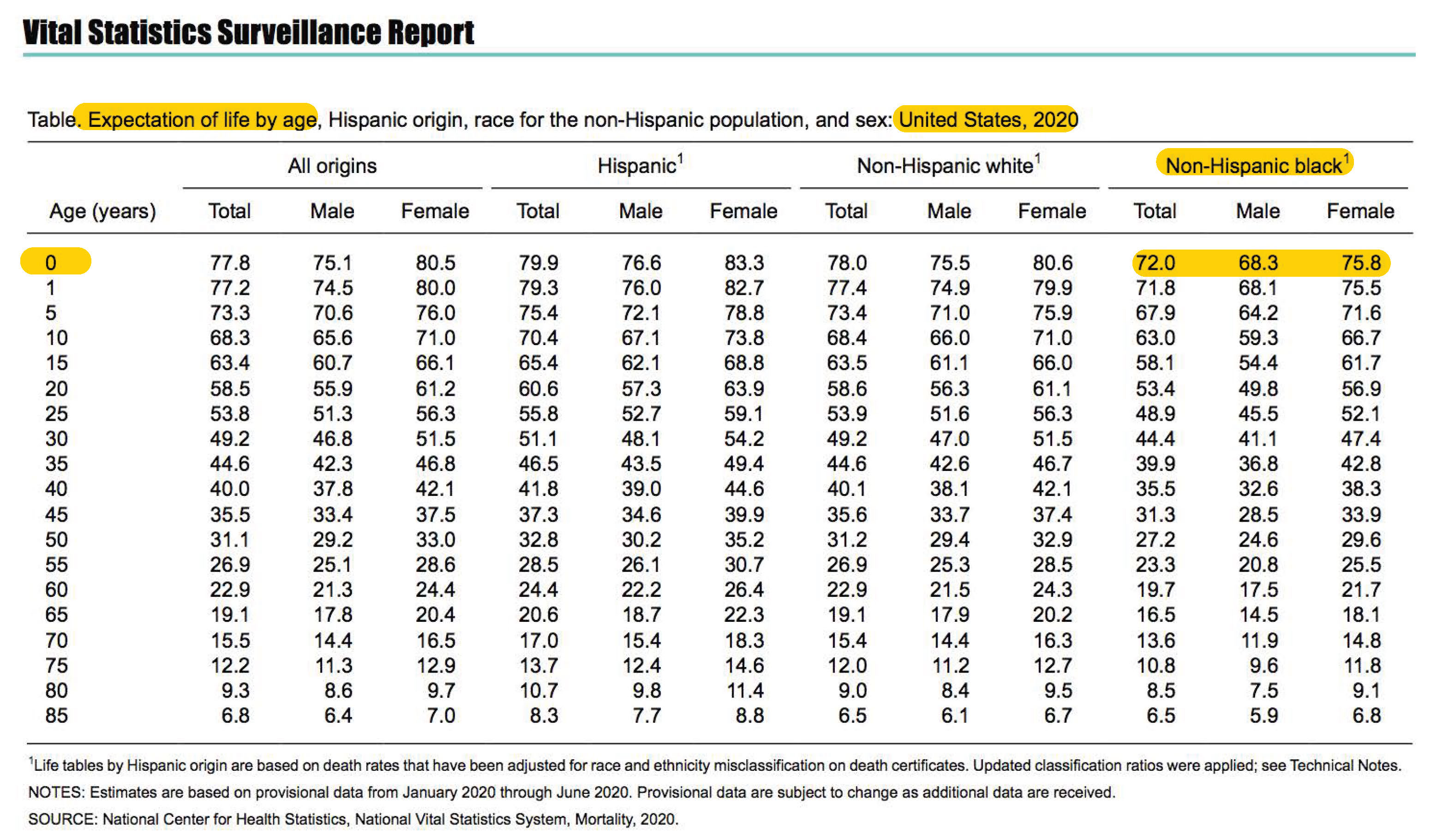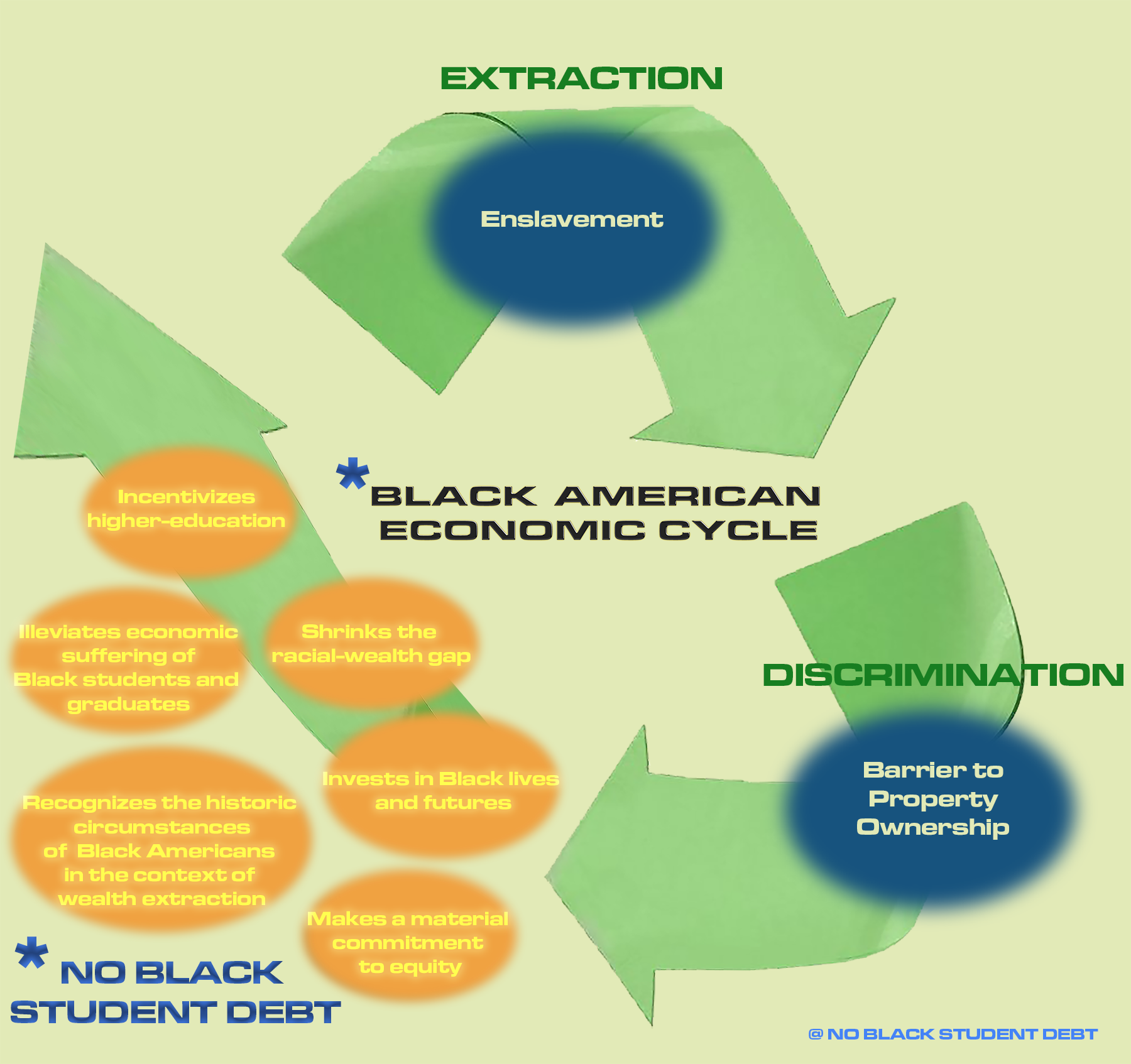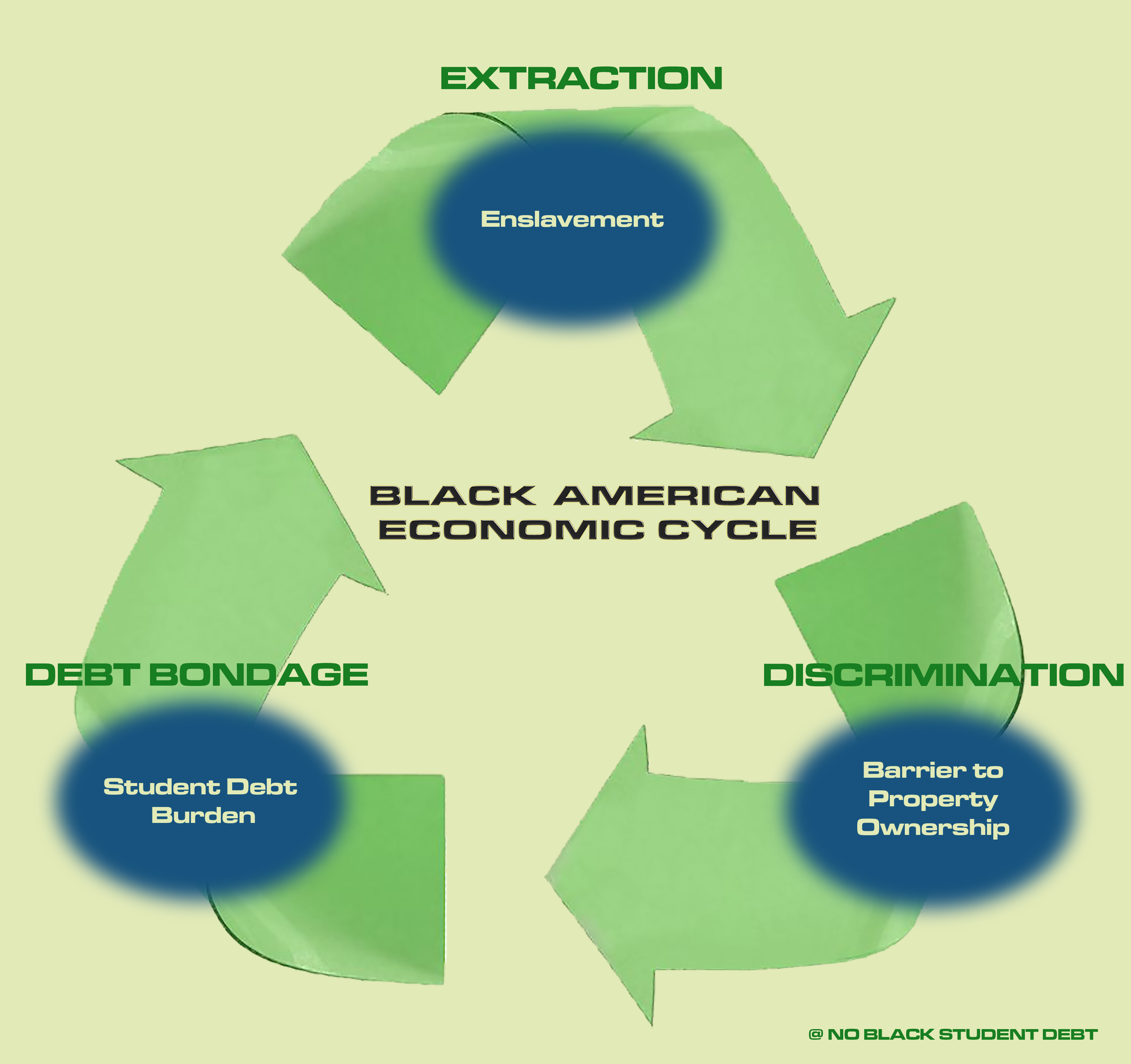



offers an actionable path towards addressing systemic racism based on materiality.
Participating institutions have an opportunity to set a national precedent and make material commitments to closing the racial wealth gap.
🌹
An inheritance of inequality :
Inequity infects all sectors of American life.
The U.S. is disadvantaged by its systemic discrimination. Citigroup estimates the U.S. economy lost $16 trillion over 20 years due to discrimination against Black Americans.
Structural change is the only way to address the myriad of inequities that humiliate American credibility internationally and thwart domestic unity across divides of race and wealth.

Enlightened Self-Interest :
It is within U.S. institutions long-term enlightened self-interest to excavate glaring inequities that materially benefit White Americans, while disadvantaging all others.
Symbolisim is an unsustainable approach for a nation that intends to compete in a fast-moving, globalized, 21st century. School over pirson.
The Federal Prison Industries program (trading as UNICOR) makes over $500 million annually in net sales using prison labor (with over 50% of sales going to the Defenese Department.)
UNICOR employs 17,000 inmates between 23¢ to $1.15 per hour to do eveything from “heavy manufacturing to computer-aided design.”
Since 2005, there has not been a nationwide census of prisons. It was estimated that there were nearly 1.5 million incarcerated people working, including 600,000 people in the manufacturing sector.

Race-Gender Pay Gap :

Black student debt is a gender justice issue.
In 2020, Black women earned $0.63 to every $1 of their White male counterparts.
Unsuprisingly, Black women have the largest student debt burden of any group in the U.S., proporationate to population.
Black Life Expectancy :
The 2020 CDC Provisional Life Expectancy report states that Black life expectancy in the U.S. shrunk by 2.7 years in 2020.

Black males are the only demographic not expected to live to 70 years old.

Material solutions for material problems.
------------------------------The public sector has proven impotent at addressing systemic material inequities.
In 1998, Princeton University set precedent as the first university to offer full tuition remission to low-income students. Soon thereafter, other peer institutions followed suit.
Institutional action in the private sector is an opportunity to create a large-scale impact, influence national discourse, make history, ignite momentum, and build authentic partnerships between those working towards an equitable society.
One university, recognizes the injustice of Black student debt, can create a domino effect when one institution becomes the first to recognize the injustice of putting descendants of enslaved Black Americans in debt for education.
------------------------------
Eliminating Black student debt does the following :


- Alleviates suffering - finanical and emotional - of Black students and graduates
- Eases economic precarity and long-term financial insecurity
- Invests in Black lives and futues
- Shrinks the widening racial-wealth gap.
- Economically stimulates wealth-deprived communities
- Significantly shrinks Black debt-to-income (DTI) ratios, increasing probabilities for Black homeownership
- Incentivizes Black youth to pursue education
- Activates institutions as action-based change agents for an equitable society
- Makes material the public commitments to racial-economic equity
- Moves forward restitution for the descendants of millions of enslaved people
- Improves American viability in an increasingly competitive global marketplace
- Repairs American credibility by actioning policies move towards equity
- Recognizes the unique, historic, circumstances of Black Americans in the context of wealth extraction
Our generation can finally advance change.
By breaking the debt bondage cycle, we birth countless opportunities for the descendants of Black Americans to reach their potential.
Ch. 4 examines the cost of inaction.


